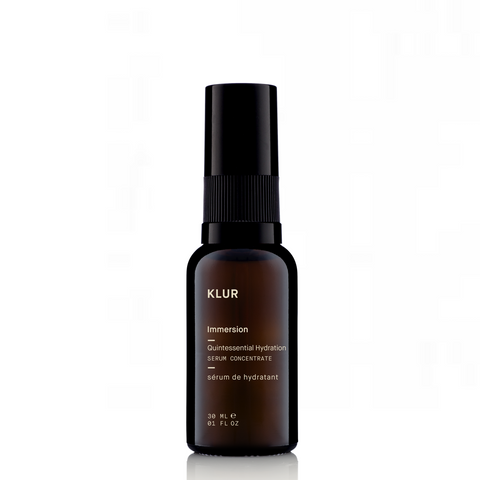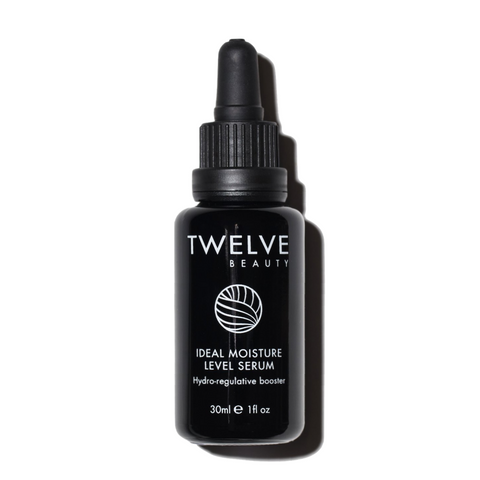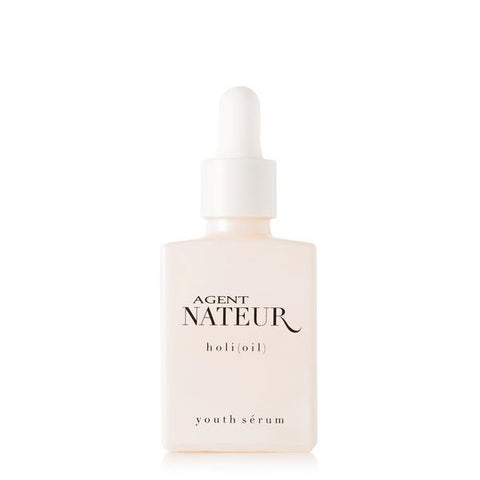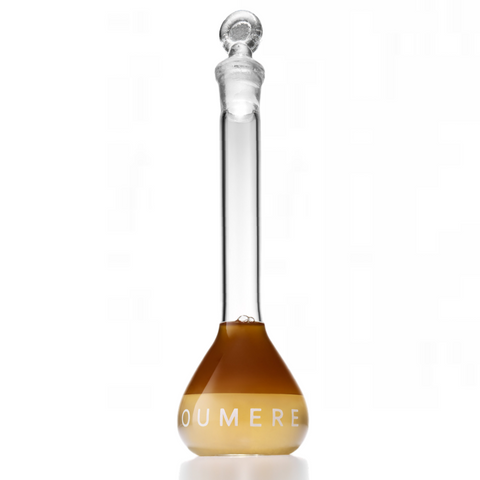Free shipping for HK orders HK$600+
Does Drinking More Water Hydrate The Skin?
July 13, 2021
We have all been told by celebrities, beauty gurus and magazines that the secret to their poreless, beautiful skin lies in drinking huge amounts of water. While water is absolutely vital to our overall health, there's actually a lack of research showing that drinking extra water has any impact on skin hydration or appearance.
____________________________________
How Water Goes Through The Body
When you drink water, it travels through the esophagus to the stomach before entering the small intestine. It then makes its way into the bloodstream and gets filtered by the kidneys, so the cells and organs can get the hydration they need to perform optimally.
So yes, water does have an indirect effect on the skin, as it helps flush out toxins and waste from the body and assists in circulation and getting oxygen and nutrients to the skin cells; and yes, the skin will be impacted when you are severely dehydrated because your cells and organs cannot function properly without water. However, what water does not do, is automatically go to the skin and hydrate it.
In fact, drinking an excessive amount of water can lead to other health problems, and may even lead to a potentially fatal condition called hyponatremia, also known as water toxicity.
____________________________________
How Our Skin Loses Hydration
Our skin’s lipid barrier has the main function of water retention and blocking out bacteria, irritants and harmful substances. When the barrier is compromised, the skin cannot retain water properly.
The problem is, a lot of things can damage the lipid barrier —— changes in temperature and humidity, constant rubbing of face masks against the face, face scrubs, foaming cleansers, face picking, inappropriate use of skincare products, pollutants and irritants, UV exposure, and so on.
To make things worse, the levels of the lipids needed for a healthy lipid barrier decline with age. As a result, upper layers of the skin become thinner, the skin is more prone to dryness, dullness and conditions such as eczema and psoriasis, whilst fine lines and wrinkles become more prominent. (For more information on why the lipid barrier is the key to skin health, click here.)
On the other hand, the skin naturally loses water via a process called trans-epidermal water loss (TEWL). While this process is naturally regulated by the skin, TEWL can be sped up by factors such as the sun, low humidity, air-conditioning and heating, frequent use of hot water, drying skincare products, and sweating, etc., and in particular, a compromised skin barrier.
____________________________________
How To Keep The Skin Hydrated ① Do Not Destroy The Skin Barrier
Some people enjoy that squeaky clean feeling after cleansing, but guess what, when your skin feels extra clean, your lipid barrier is more likely than not to have been already damaged. This is because the skin barrier is held together by oils in the skin that act like glue.
While using a facial cleansing brush or scrub sounds like you are thoroughly cleansing your face and pores, the constant friction can break down the skin’s lipid barrier. In addition, foaming cleansers, which usually contain sodium lauryl sulfate (SLS) or sodium laureth sulfate (SLES), strip the skin of its natural oil, and can damage the skin’s lipid barrier.
All these weaken the skin's water retention ability, which leads to dehydration, dryness and pre-mature aging, as well as its defence ability in stopping harmful bacteria and pollutants from entering the body through the skin, resulting in acne, irritations, redness, and inflammations like eczema and dermatitis.
Product Recommendation
AGENT NATEUR
acid(wash) Lactic Acid Brightening Cleanser <- Click to shop
Product Recommendation
EATH LIBRARY
Smooth Operator Purifying Cleansing Gel <- Click to shop
____________________________________
How To Keep The Skin Hydrated ② Use A Hydrating Toner Within 60 Seconds Of Cleansing
When dish-washing liquid is squeezed on a dry sponge, it won’t get distributed evenly on the sponge to effectively clean the dishes. The skin after cleansing is just like that. Without that extra water, all those serums, oils or moisturizer won’t get absorbed and distributed properly in the skin; whereas when they are put on damp skin, penetration will be much better.
Whilst, hydrating serums are usually filled with humectants, such as hyaluronic acid. These humectants work by pulling water from its surroundings to the epidermis. When the air’s humidity is over 70%, they can pull water vapour from the air to hydrate the skin. Nevertheless, when the humidity is low (such as in an air-conditioned room), these humectants will instead draw water from the dermis (the second layer of skin) to the epidermis. This essentially means, you need actual water molecules by using a hydrating toner, so that the humectants can actually have something to draw from, and the moisturizers can have water to lock in.
Also remember to use a toner within 60 seconds of cleansing, to replenish the skin with water, and before evaporation starts.
Product Recommendation
MARIE REYNOLDS LONDON
Hydr8 Misting Veil™ <- Click to shop
Product Recommendation
TWELVE BEAUTY
Ultra Revitalising Elixir <- Click to shop
____________________________________
How To Keep The Skin Hydrated ③ Use A Hydrating Serum With More Than Just Hyaluronic Acid
A hydrating serum, unlike a moisturiser that is generally high in occlusives that lock in hydration rather than adding back to the skin, delivers a cocktail of highly active and hydrating ingredients that are smaller in molecular sizes to penetrate deeper into the dermis without clogging pores. Some of them also contain skin plumping ingredients like peptides, so that the skin will look hydrated, and plumped.
That most important thing though, is to look for a hydrating serum that contains not only hyaluronic acid as its main ingredient, and definitely not one that highlights ultra low-weight or nano-sized hyaluronic acid as they can cause inflammation (for detailed explanation see this article => here).
Product Recommendation
KLUR
Immersion Serum Concentrate <- Click to shop
Product Recommendation
TWELVE BEAUTY
Ideal Moisture Level Serum <- Click to shop
____________________________________
How To Keep The Skin Hydrated ④ Use An Oil Even During Summer
While the body is made up of up to 70% water, the outermost layer of the skin, aka stratum corneum, is made up of ceramide, cholesterol and saturated fatty acids. Therefore in order to rebuild and strengthen the lipid barrier, you need to add oil to your routine in addition to hydration.
By replenishing the skin with lipids, antioxidants, vitamins, minerals and polyphenols that are abundant in oils, not only will the skin feel moisturized, the skin will also be able to fortify itself, retain optimal moisture, fight free radicals, stimulate collagen production, and maintain a healthier, stronger barrier to effectively improve skin issues such as dryness, eczema, irritations, oiliness and wrinkles, thereby slowing the aging process.
In fact, for those that are prone to clogged pores, an oil, which has a smaller molecular size than a moisturizer, may be even better than using a moisturiser.
During summer months, focus on using it in the evenings, but if you're extra dry, you may also want to use two drops in the mornings.
Product Recommendation
AGENT NATEUR
holi(oil) Ageless Face Serum <- Click to shop
Product Recommendation
OUMERE
Serum Bioluminelle™ <- Click to shop
____________________________________
How To Keep The Skin Hydrated ⑤ Use A Sleeping Mask When You Sleep In An Air-Conditioned Room
Trans-epidermal water loss is accelerated when you sleep in an air-conditioned room. Sleeping masks function similar to a night cream, but are packed with more active ingredients on top of hydration, and deliver better efficacies as compared to night creams. They also help lock in all the nutrients from your previous skincare steps and prevent trans-epidermal water loss.
Formulation is important here, because if too many occlusive ingredients are present, or if the texture is too thick, it may end up clogging pores, especially if used on top of moisturizers. So choose one that is lightweight enough, or simply skip your moisturizer when you are using a sleeping mask.
Product Recommendation
EATH LIBRARY
The Bright Recovery Brightening Overnight Mask <- Click to shop
____________________________________
How To Keep The Skin Hydrated ⑥ Avoid Anything With Drying Alcohols
Alcohol in skincare products is often used to help with evaporation for a lighter, fresher and dry-to-touch sensation, but it is also this particular property that may irritate the skin. These drying alcohol usually appear as Alcohol, Alcohol Denat., Isopropyl Alcohol, Methanol and SD Alcohol in a product’s ingredient list. When used in high concentrations, they deteriorate the skin’s protective barrier, rendering it ineffective at keeping moisture in and bacteria out, while stimulating oil production. These all may lead to dryness, irritations, and breakouts.
Product Recommendation
TWELVE BEAUTY
Clear Beginning Hand Spray <- Click to shop
Also in The Journal

The Hidden Culprits of Skin Aging: Autophagy Decline and Zombie Cells
January 07, 2026
Don't just mask aging—reverse it. Learn how clearing Senescent Cells and restarting Autophagy creates lasting youthful skin.

The Anti-Aging Gold Standard: How Retinol Reshapes The Skin
November 12, 2025
Learn why retinol is the gold standard for anti-aging, how it works, what similar ingredients exist, and some common myths and misconceptions.

The Gut-Skin Connection: The Path to Healthy Skin
October 26, 2025
Acne, eczema, rosacea, and sensitivity can all be linked to the gut health, and even gluten? Learn all about the connection between the gut and the skin.
+Recent Articles
-
The Hidden Culprits of Skin Aging: Autophagy Decline and Zombie Cells
January 07, 2026
-
The Anti-Aging Gold Standard: How Retinol Reshapes The Skin
November 12, 2025
-
The Gut-Skin Connection: The Path to Healthy Skin
October 26, 2025
-
The Secret to Reversing Skin Aging! How Growth Factors & Peptides Help Turn Back the Clock
October 13, 2025
-
The Best Ways and Times to Take Different Supplements
August 19, 2025
-
Luxury vs. Budget-Friendly Skincare Products——What Are Their Differences?
August 06, 2025
-
How to Prevent and Improve Post-Inflammatory Hyperpigmentation (PIH)
July 10, 2025
-
How to Prevent and Improve Post-Inflammatory Erythema (PIE)
July 08, 2025
-
The Ultimate Cleansing Guide to Improve Skin Conditions
June 03, 2025
-
Do You Have Sugar Face? How Does Sugar Affect Our Skin and Appearance?
May 20, 2025
Subscribe to get skincare knowledge delivered to your inbox!













